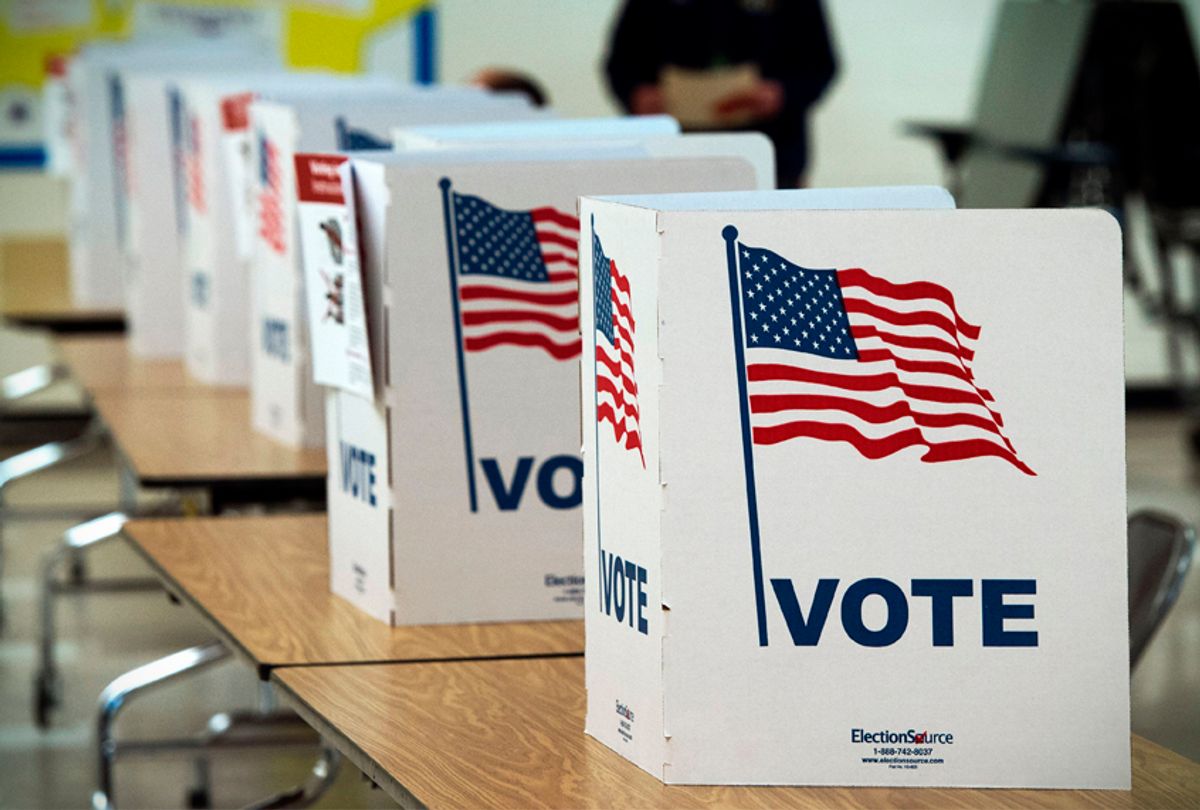The Republican Congress has bottled up bills that could prevent disenfranchisement of African-Americans and other minorities as part of their effort to retain control of Congress.
The U.S. Commission on Civil Rights, which recently documented elections where voter rolls were purged and other measures were taken to keep minorities from voting, has urged Congress to update the landmark 1965 Voting Rights Act.
“Hundreds of thousands, perhaps millions of people, are being barred from participating in electing individuals who control their lives and who control their communities,” said Sherrilyn Ifill, the president of the NAACP Legal Defense Fund.
The Voting Rights Advancement Act, H.R.2978, sponsored by Rep. Terri Sewell, D-Ala., would mandate that states and local governments with a history of voting rights violations have changes in election procedures approved beforehand by the Department of Justice. A similar bill in the Senate, S.1419, is sponsored by Sen. Patrick Leahy, D-Vt.
Thirteen states — Alabama, Arizona, Arkansas, California, Florida, Georgia, Louisiana, Mississippi, New York, North Carolina, South Carolina, Texas and Virginia — would be scrutinized because of their histories of violations, under Sewell’s bill.
The House has bottled up Sewell’s bill in the Subcommittee on the Constitution and Civil Justice since July 2017. Leahy’s bill has been stalled in the Committee on the Judiciary since June 2017.
Both bills would restore a key provision of the Voting Rights Act that was struck down in 2013 by the Supreme Court in Shelby County v. Holder. Chief Justice John Roberts wrote the 5-4 opinion, saying the formula for determining which states had to submit proposed election laws to the federal government was outdated.
At least 23 states have passed newly restrictive statewide voter laws since the Shelby County decision, according to the Commission on Civil Rights.
Within two hours of the Supreme Court decision, Greg Abbott, then the Texas attorney general, tweeted that Texas would reinstitute a strict photo ID law which disproportionately affected African-American and Hispanic voters.
A court previously found that the Texas photo ID law, the strictest in the country, imposed “strict, unforgiving burdens on the poor, and racial minorities.” After Abbott reinstated the law, a Texas federal court found the costs of complying with the law were an unconstitutional poll tax, but the Supreme Court later threw out a preliminary injunction that had blocked the law from taking effect. Implementation of the law was not blocked until 2016.
Texas voters elected Abbott governor in 2014. They also elected a U.S. senator, all 36 members of the Texas delegation to the U.S. House, an attorney general, controller, four justices of the Texas Supreme Court and other officials while the I.D. lawsuit was pending.
In North Carolina, the General Assembly amended a bill the day after the Shelby County decision to make the state’s voter ID law stricter. North Carolina counties cut 158 early voting sites in the 40 counties that had been covered under the Voting Rights Act.
State Republican party executive director, Dallas Woodhouse, told county election officials to end early voting on Sundays when African-American churches often provided transportation to polls.
“Many of our folks are angry and are opposed to Sunday voting for a host of reasons including respect for voter’s religious preferences, protection of our families and allowing the fine election staff a day off,” Woodhouse wrote.




Shares